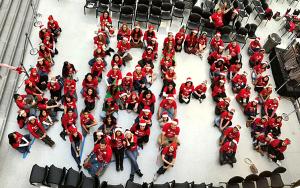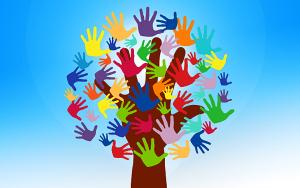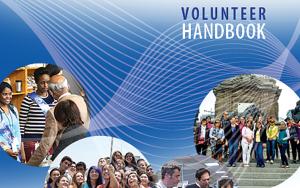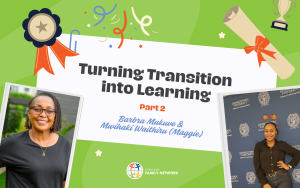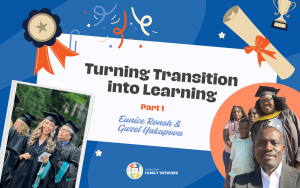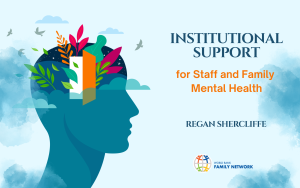
Who knew that the WBFN was born as a result of a lonely funeral back in the late 1960s? Wives of senior staff members, attending the service, were confronted with the acute isolation of the widow. Having moved to DC to follow her husband, she found herself alone without friends or family—even at this tragic moment. Today it is hard to imagine—but this was in an era before e-mail, before the Internet and World Wide Web, before cellphones and when calls home on the landline would have been exorbitant.
It was as a consequence of this sad occasion, that in 1969, Margaret, the wife of World Bank President Robert McNamara, and two senior staff wives, Ruth Isbister and Babs Knox, formed the first committee to look at ways to support World Bank spouses living in the US. In 1961, Margaret McNamara had already been instrumental in founding THIS—the volunteer organization that assists families of foreign diplomats arriving in DC. By 1972, with the support of President McNamara they had drafted a constitution for the volunteer organization, come to an agreement with Personnel on the reach of their responsibilities and Anne Wieczorowski had designed an official logo for WIVES (Women’s Information and Volunteer Services). They were also given an office in the D building, a paid administrator and a budget of $2,000. Despite this bounty, a later Chair of WIVES was to comment wryly:
“We had to give up serving coffee at our meetings in order to cut our costs. It is with amusement that one can now read a heated response to Staff Relations comparing the cost of our hard working volunteers to the cost of the World Bank interest groups such as Chorus, Chamber Music Group and others...” Ruby Wingate, Executive Committee Chair.
Meanwhile on the other side of the river, two similarly sensitive women—Aida Habib and Irene Mould— having recognized the isolation and hardship faced by spouses, were putting pins into a map of Northern Virginia to chart local World Bank families. They arranged a coffee morning for Bank wives at a local church and a total of 380 attended. After this success, the Virginia group plunged into forming activity groups, planning services and providing child care. With no support from the Personnel Department they dipped into their own pockets to meet expenses.
When the two groups—from North and South—became aware of each other’s activities there was some initial tension but they succeeded in putting this aside and joined forces. In June 1972 an announcement was mailed to all staff wives about the new organization and included a questionnaire to determine top priorities. An overwhelming 75% of respondents gave top priority to welcoming and assisting newcomers to relocate and establish support networks. The second priority was English language instruction.
Looking back through the archives at letters submitted to a 1974 newsletter by staff wives, one gets a snapshot of the era. Alongside comments about a successful quilting workshop and transatlantic charter flights to bring children home for holidays to ease the cost of flying during the oil embargo, is the subject of obtaining work authorization for spouses.
“As you are aware, the Bank and Fund have been exploring with the US Department of State possible ways of alleviating those problems. State Department officials have advised us that possible solutions would require passage of legislation by the US Congress.” R. A. Clarke, Director of Personnel.
In 1977 WIVES also began to address the problems faced by divorced spouses who had no repatriation rights, leaving them financially stranded, often with children, in the US. Its eff orts went on to include securing pension rights and access to medical insurance in situations of divorce. In 1996 WIVES was still working with the Vice President of Human Resources to apply these critical changes to the benefits afforded to spouses. As a result, the Bank Group became the first international organization to amend its Staff Rules regarding pension payments aft er a divorce.
In addition to the more visible activities and events arranged by WIVES, such as the Children’s Christmas Party, welcoming coffees, classes and training, the organization has played an often unsung role in strengthening the rights of spouses and by extension their families. As an early editor commented: “Two months of posting letters in a street-corner trash bin may have elicited a smile. But stories of wives whose husbands were sent almost immediately on mission, leaving them in a hotel room, perhaps pregnant, with small children, little English, less money, no transportation, and no family or friends for support—these stories demanded action.” Sarah Green, WIVES Editor
As the organization matured, WIVES was to change name and acronyms to keep up with the times. While there was some early dissent in 1976 about the term WIVES, from younger spouses, it was not until 1984 that the acronym was changed to WBVS (World Bank Volunteer Services). Later, in 2003, it finally became WBFN (no translations needed).
Today, thanks to more than 40 years of tenacity and vision, WBFN dedicates itself to a range of activities and services. For example, WBFN runs a Spouse Issues Committee, a group dedicated to assisting spouses/ partners that find themselves in personal difficulty. In addition, offered in conjunction with the Bank’s Domestic Abuse Prevention Task Force is a 24/7 confidential hotline (HUB/COPE) for those with domestic abuse concerns. The HUB can now also be accessed instantly via a smart phone app, which launched this summer.
Another of the organization’s principal focuses is supporting job-seeking spouses, providing them with opportunities to network and assisting in their search for volunteer and job positions. WBFN also welcomes volunteers at its offices in the J building. Volunteering can be a great way to exercise your voice and move on to other things. Most of all, WBFN urges spouses and partners to get involved; there is nothing like the isolation of “going-it alone”, so contact Mosaic or the office and find support in numbers.

